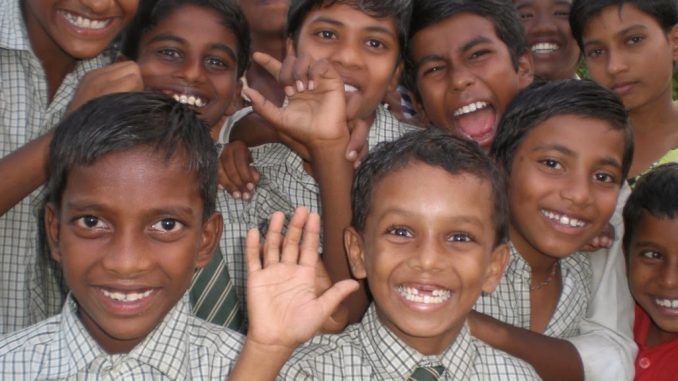
By Rishma Dhillon Pai
New Delhi : Private sector and civil society will have to work together to reach the ambitious goal set by Family Planning 2020
Imagine an innovation that could break entrenched cycles of poverty and inequity and spur development across India. Something that could impact family health, accelerate women’s empowerment, improve education, enhance economic productivity and let India reap the benefits of its demographic dividend.
It seems almost too good to be true, but such a tool does exist: contraception. When women and men have access to contraceptives, a world of opportunities opens up for them. Family planning allows couples to decide whether, when and how many children they want — but the benefits extend far beyond that.
With better access to family planning, we would see improvements in the health of women, children and entire communities. There would be fewer unwanted pregnancies and unsafe abortions. More women could advance their education, participate in the workforce and contribute to the economy. As president of the Federation of Obstetric and Gynaecological Societies of India (FOGSI), I believe that women are the backbone of thriving societies. And I know that sustainable development is not possible without first investing in the health of women
and children. But if these tools exist, what’s holding us back? The National Family Health Survey tells us that only 48 per cent of married women aged 15-49 in India, currently use modern contraceptives.
For decades, India’s family planning program was focused on population control. Over the years, that focus rightly shifted to reproductive health and rights. But despite this progress, many women in India still don’t have access to contraceptives or the awareness to make informed choices about family planning.
Five years ago, countries and partners from around the world made a promise to give 12 crore more women access to contraceptives by 2020. This was part of a global movement called Family Planning 2020. India alone committed to provide family planning services to 4.8 crore new users. That’s not all: India also committed to continue coverage of over 10 crore women already using contraceptives, increase financing for family planning, improve access and quality of services, and make more contraceptive options available to choose from; all by 2020.This is no small promise, and we still have much to do to reach these goals.
India has also committed to achieve the Sustainable Development Goals (SDGs), which include explicit targets to ensure universal access to family planning by 2030. Indeed, as Prime Minister Narendra Modi has said, “Much of India’s development agenda is mirrored in the SDGs.” Importantly, the SDGs also emphasise that successful sustainable development requires partnerships among Governments, the private sector and civil society.
The Government of India recognises the importance of family planning and I applaud their commitment to improving the lives of women, men and families. But no matter how great our commitment or how noble our intentions, we will not meet these targets acting alone. In order to drive meaningful change and accelerate progress on the FP2020 goals, partnerships are a must.
I believe, that with the privilege of doing well comes the opportunity to do good. FOGSI recognises the need to engage beyond the private sector. This means working with the Government to provide access to quality family planning services and contraceptive choice. With 223 member societies and over 29,310 individual members spread across India, FOGSI’s network has immense capacity to affect positive change. The private sector is critical to development, and FOGSI could assist the Government in many ways (for example, providing inputs on training manuals, supporting Government-led trainings for service providers, or engaging with Civil Society Organisations to raise awareness at the community level). Through such actions, we would reach women, men and families with information, resources and services to improve their health and well being.
The FOGSI’s theme for 2017 is ‘She matters: Care, Educate and Transform.’ But transformation cannot come about in isolation. It can only happen when we join hands and work together. FOGSI is committed to working with the Government and other partners to improve access to family planning for women and men across India. The FP2020 goals are ambitious, but they are not unattainable, and I believe that we can achieve them.
(The writer is the president 2017, Federation of Obstetric and Gynaecological Societies of India)
Source: Daily Pioneer

Leave a Reply